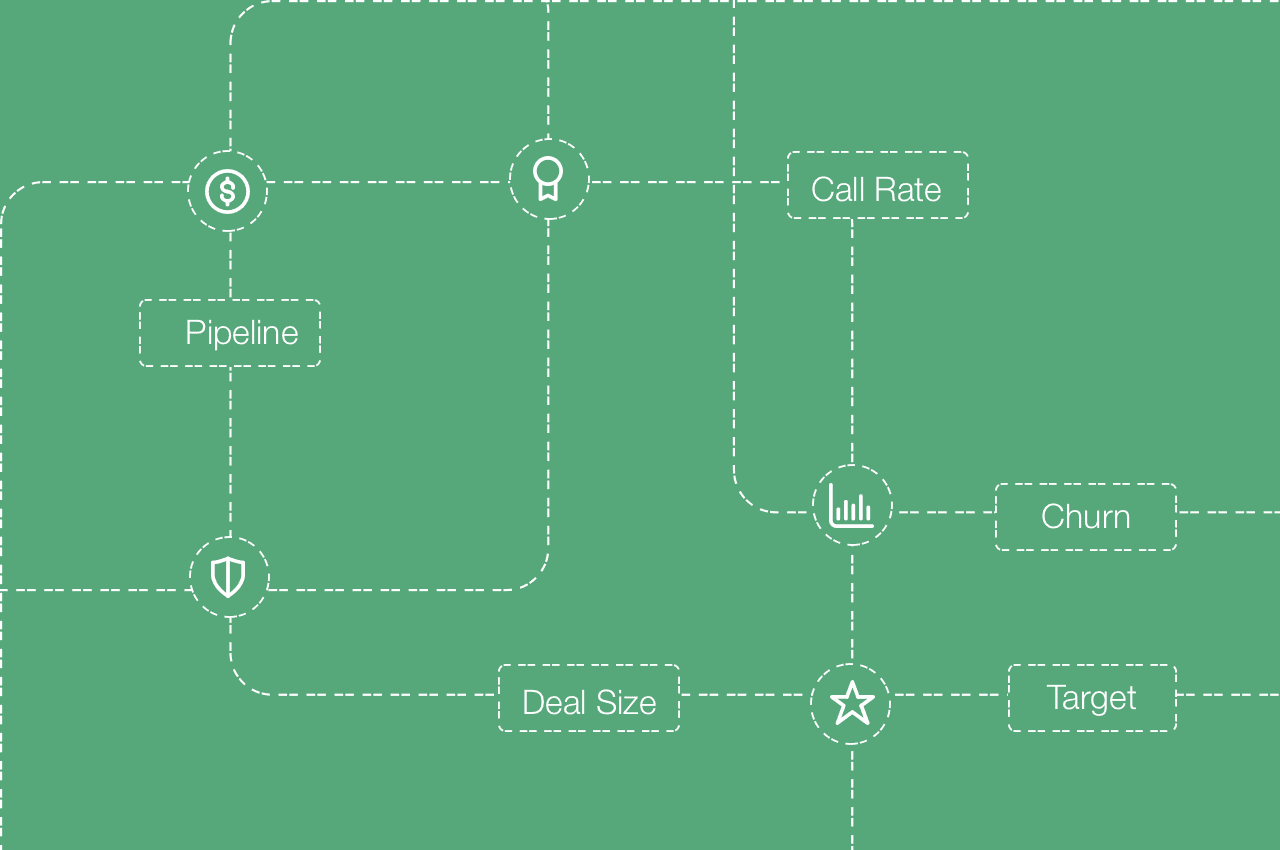Summary
See how a well-planned mentorship program can improve coaching quality, close skill gaps, and create a stronger, more confident salesforce.
All the top performing sales organizations are the firm believers in the sales mentorship programs. A sales mentorship program is extremely crucial for the effective training of the employees and every organization should consider implementing it.
What is a sales mentorship program?
Sales mentorship programs connect people who have specific skills and knowledge (mentors) with individuals (mentees) who need or want the same skills and advantages to progress in their work. For sales organizations, this usually means pairing up senior and experienced sales reps with newly hired sales reps. This provides an opportunity for new hires to ramp up quickly and also prepare senior sales reps for leadership roles.
Various studies show that sales mentorship programs help both mentors and mentees to get:
Promotions
Raise in salaries
And job satisfaction
This, in turn, results in retention of the employees
What are the benefits of a sales mentorship program?
Here are some benefits of the sales mentorship program for both the mentors and the mentees:
Improves the knowledge and skills of mentors: Mentors play the most crucial role in making the mentorship program a success of the sales mentorship program. To train new hires properly and bring them up to speed, mentors need to study, research and sharpen their own skills. This helps them attain expertise and grow in their career as well.
Increase engagement: The sales mentorship program establishes a deep and meaningful connection between the mentor and the mentee. This,
Improves relationships amongst the employees
Makes them feel heard
Develops a feeling of belongingness
Improves their engagement at work
Leadership Development: Mentoring people enables mentors with the intelligence of leadership skills. This prepares them well to take on a leadership role in the organization in the future.
They motivate team members to accomplish more
Provide their teams with genuine feedback so they can improve

How to create and implement an effective sales mentorship program?
Step-1: Select the right mentors
Mentors are the main protagonists of your mentorship program. So, it’s crucial that you select the right ones.
When selecting mentors, keep in mind that the people that you are selecting are,
The senior sales reps in your organization and have got good experience in sales
Their past performance record is exceptionally good
They have excellent product knowledge and selling skills
They have some unique selling techniques under their sleeves
They have great communication skills
They are quick learners and have the zeal to learn more in order to improve
They possess leadership qualities and are capable of taking ownership
Step-2: Train the Mentors
Even if you have selected the most amazing salespeople in your organization as mentors, it doesn’t mean they would know everything about mentoring. You need to provide them with training on how to be effective mentors.
Conduct a formal one or two-day training session where you impart to the mentors with the knowledge on,
Goals and objectives of the mentorship program
Timeline to ramp up new hires
How to recognize each person’s learning style and help them accordingly
How to get them started in the real sales world
How much hand-holding should they do and when should they let the mentees figure things out on their own
What best practices should they follow during mentorship
You can also conduct video coaching and role-playing sessions to prepare your mentors for effectively handling real-life mentoring situations.
For example, give them a situation where the mentee is being completely dependent on the mentor. Without thinking about how he can solve a particular issue, he tends to approach his mentor for every small or big sales issue.
So, ask the mentor to make the mentee understand that he needs to first try to solve the situation by himself before approaching the mentor.
This helps the senior salespeople to not only become better mentors but also learn management skills which would help them in the future to progress in their career.
Step-3: Organize a Meeting and Assign the Mentors
Set up a meeting where you gather the mentors and mentees and announce the initiation of the mentorship program. This is where you,
Explain everything regarding the mentorship program to your people
Take their questions and provide them with answers
Then assign mentors to the mentees
How to best assign mentors?
Ideally, you should go for a 1:1 mentorship where one mentor is assigned to each mentee. However, this will work if your new hire population is less (10-20 people). If you have a huge population of new hires, then you can assign 4 mentees to 1 mentor.
Pro-tip: Make sure that each mentor has no more than 4 mentees. Because having more than 4 mentees would overwhelm the mentor and result in him failing to provide complete attention and guidance to each of his mentees.
Also, make sure that you formally introduce the mentor to his mentees. Tell the mentees about their mentors,
Name and role
Their experience
Their past performance record
The rewards/ awards that they received (if any)
Then, let the mentors and their respective mentees interact so that they get to know each other and bond amongst themselves. This helps in establishing a friendly relationship between the mentor and the mentees.
Step-4: Equip the mentors with the right resources
No matter how perfect of sales mentors you have got, they would need help in carrying out their work. You can provide this help help by equipping them with reference material which provide a set of guidelines to the mentors to carry out their mentoring efficiently.
So, develop study materials, PDFs, and playbooks which contain,
The goals and objectives of mentoring
Best practices for mentoring
Deadlines to achieve the goals of mentoring
Mentors can refer to these materials when in doubt and carry out the training efficiently.
Step-5: Encourage the mentors to document their mentees’ progress every day
Encourage your mentors to maintain a document where they make an entry of what’s been learnt and done by their mentees throughout the day.
The mentors, at the end of every day, should enter,
What activities did each of their mentees do throughout the day?
What did each mentee learn that day?
What skills have they acquired? For example, did they learn to,
Use CRM or any other sales tool
Tackle prospects’ resistance
Pitch a product etc
Did they make any progress in any particular area?
This way when a record is maintained it becomes easy for you to track the progress of the mentorship program.
Step-6: Measure the Progress of the mentorship program
You can measure the progress of various mentors by closely measuring:
Their mentees ramped up time and their ability to operate independently
Their mentees’ ablility to work efficiently. You can measure this by monitoring the
Number of proposals that each mentee has sent
Number of phone calls made, emails sent or meetings done by each mentee
You also need to collect feedback from the mentees to see if they think their mentor was helpful to them or not
By measuring these, you will be able to get an insight into who is doing a good mentoring and who is not. Once you know this, you can take appropriate measures to bring the underperformers up to speed.
Step-7: Celebrate success and Provide Incentives to the mentors
Mentorship is a huge responsibility on the mentors. They have to invest a significant amount of time and effort to educate people and bring them up to productivity in a given period of time.
So, make sure that you appreciate them when they do well in this role.
Celebrate each and every smaller win of the mentors.
Reward them for their achievements. For example you can reward a mentor
If one of her mentee closes her first deal before everyone else in her batch of new hires’
If all the mentees of a mentor ramp up and become fully productive within 3 months
If the mentees of a mentor are making more phone calls in a day than everyone else
As a token of appreciation you can give rewards, awards, promotions and pay raises to the mentors
Giving incentives and rewards to mentors will make them feel wanted. They’ll know that their hard work is being recognised.
Step-8: Hold regular meetings with the mentors and discuss their issues
Organize meetings with mentors, once every 15 days to find out
If they are facing any issues during their mentoring
If they are struggling to educate and upskill any particular mentee of theirs
What are some of the common challenges faced by this batch of new hires?
Are the new hires able to connect themselves with the company’s work culture?
By knowing these you can provide better guidance to the mentors to help them solve the problems that they encounter.
Step-9: Create an Exit Plan for the mentors:
At some point in time the mentees must graduate or he/she will never become independent on their own.
Ideally, after mentoring the new hires for 3-6 months, you can conduct a test to see if the new hires can operate by themselves. The people who qualify this test do not need mentoring anymore and they can be allowed to work independently. And the people who do not qualify this test need additional support. Also continue mentoring them for another one or two months. Ask the mentors to pay extra attention to these people during this time in order to bring them up to productivity. You can qualify them to work independently once you are confidant about their performance.
Learn how trainers can save time by incorporating automated AI role-plays into their sales training programs.
Read: SmartWinnr Neo AI | AI Powered Sales Coaching
Learn these 5 useful strategies that will help to reduce the ramp-up Time for Your New Sales Recruits
Strategies to Reduce Ramp-Up Time
Learn how a good product knowledge helps sales teams to sell efficiently
Good Product Knowledge Helps Sales Teams to Sell Effectively
Learn how gamification helps you to improve the engagement of your remote sales teams
Improve Employee Engagement of your Remote Teams with Gamification
Learn how to create a culture of coaching at your organization
Creating a Sales Coaching Culture with Impact
Managers need to understand how to strike the right balance between being a coach and a manager for their sales team. Read the below article to know how to do this.
Coach or Manager? What does your team want?
Related Posts
Looking for a sales training software that takes your sales training to a whole new level?
Explore SmartWinnr’s Learning and Gamification features. Learn how to run fun and engaging sales training and sales coaching for your team through SmartWinnr.
Curious to learn more about it? Book a demo today!











































































































